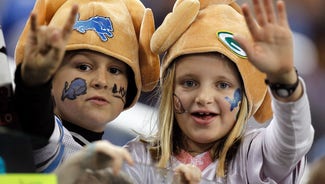
Super Bowl, World Series champs back gay marriage at court
WASHINGTON (AP) The New England Patriots are for same-sex marriage. So are the San Francisco Giants.
The reigning baseball and football champions, along with baseball's small-market Tampa Bay Rays, are among the thousands of businesses, religious groups, advocacy organizations and politicians who are filing legal briefs at the Supreme Court in support of gay marriage.
The cases from Kentucky, Michigan, Ohio and Tennessee will be argued April 28, and a decision is expected by early summer.
Roughly six dozen briefs backing pro-gay rights plaintiffs in the four states are expected by the Friday deadline. Included is a ''people's brief'' filed by the Human Rights Campaign with the signatures of 207,551 people.
The Super Bowl champion Patriots, the World Series-winning Giants and the Rays are part of a brief from hundreds of U.S. businesses.
The Patriots play in Massachusetts, the first state to allow same-sex couples to marry, and the Giants represent a city that is notable for its gay and lesbian community.
Rays president Brian Auld said it was important that his team stand up, as well.
''We're a small but visible business and I actually think it's important that we send this signal of inclusion to the entire region,'' Auld said in a telephone interview Thursday as he watched the Rays' first spring training game in Port Charlotte, Florida.
The team also has participated in the ''It Gets Better'' project to encourage gay and lesbian teenagers who've been bullied.
''Our players have traditionally been supportive of these kinds of things,'' Auld said.
Mayors of 226 U.S. cities also are expressing their support for same-sex marriage. Cincinnati Mayor John Cranley says he is not sure how his constituents feel about the issue, but said it wouldn't affect his view either way. ''I don't think constitutional rights are subject to public opinion,'' Cranley said.
Four couples from California and Virginia who had wanted the court to use their cases to settle the issue of same-sex marriage nationwide also are calling on the justices to strike down state gay-marriage bans everywhere.
---
Supreme Court justices get out a lot, crisscrossing the country on speaking tours and spending a few weeks each year teaching law school classes in idyllic settings abroad. But sometimes their questions to lawyers during courtroom arguments seem out of sync with current traveling reality.
Justice Antonin Scalia appeared to be a couple of decades behind the times during argument Tuesday over a Los Angeles ordinance that allows police to demand registration information about hotel and motel guests.
The city says the law is needed to deter prostitution, sex trafficking and the drug trade at establishments that transact a lot of business in cash, rent their rooms by the hour and attract customers who don't want to reveal anything about themselves. But the businesses say it's overly intrusive on privacy and allows police to harass them.
Defending the law, Scalia said police can detect when people are not providing the required information by comparing the registries to what they can see from the street or a hotel lobby.
''I suppose in motels they can see what rooms have cars in front of them. And I suppose as to room 1204 they can see, usually behind the desk, what keys are missing, what rooms appear not to be occupied,'' he said.
It has been a while since hotels placed guests' room keys behind the clerk, where anyone can see them. And these days, the keys are programmable cards kept in a stack and not linked to a particular room until a guest checks in.
Later in the argument, Justice Elena Kagan sought to shift the focus from low-budget motels to private hunting lodges, a more likely destination for her hunting buddy Scalia. Kagan sounded much more skeptical of the law than did Scalia, and she seemed to be trying to see whether she could persuade him.
Suppose the lodges have to keep records about their guests' hunting and state or federal agencies ''just want to make spot inspections, surprise inspections, all the time. Would that be all right?'' Kagan asked Justice Department lawyer Michael Dreeben.
But Scalia did not like the comparison because private lodges are not the same as public motels.
Dreeben knew better than to get between them. ''I will have to defer to members of the court on hunting lodges,'' he said.








